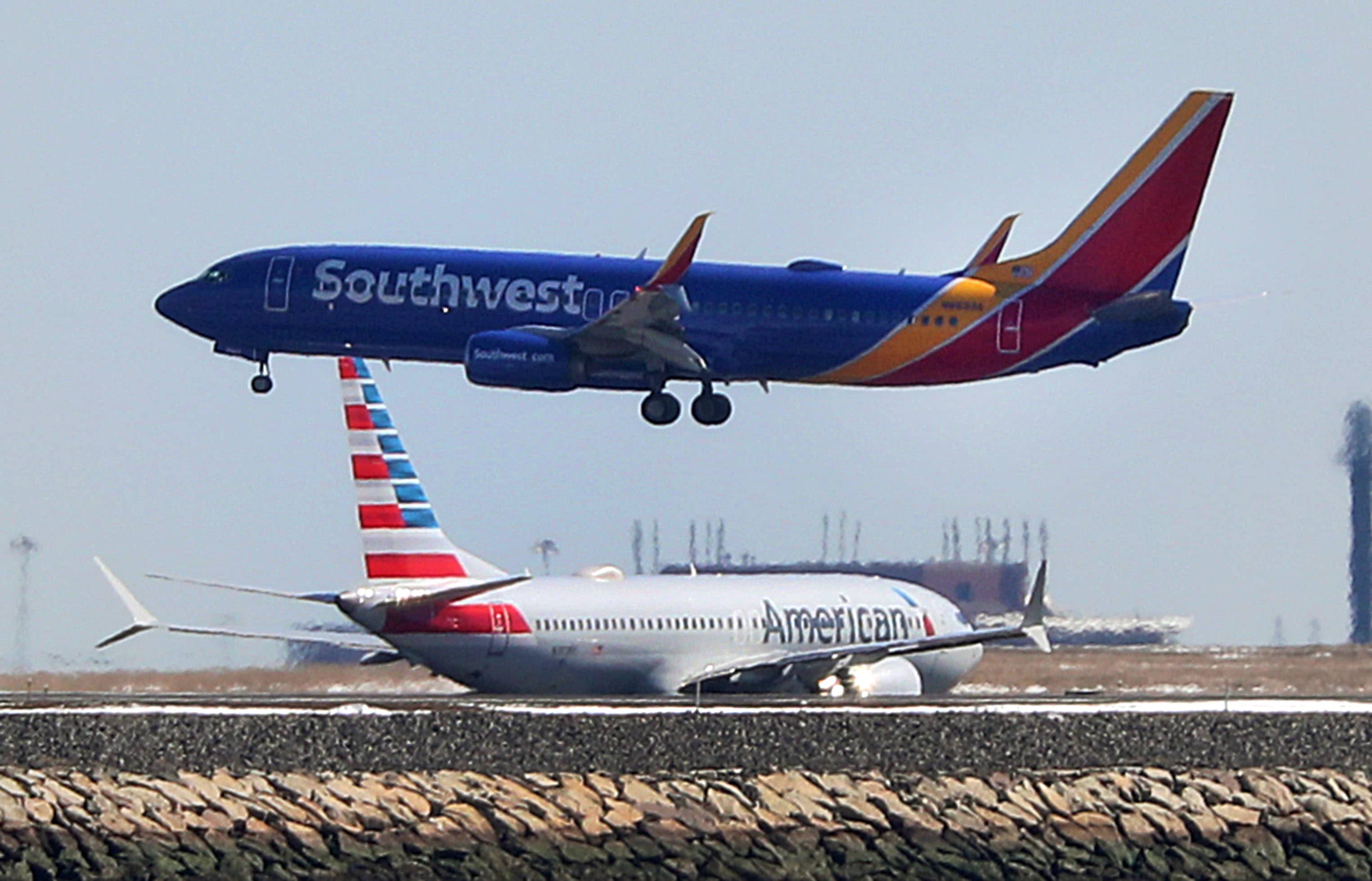American, Southwest post record annual losses as industry recovery remains elusive

Southwest Airlines flight 1117 from St. Louis lands at Boston Logan International Airport on March 13, 2019. (Photo by John Tlumacki/The Boston Globe via Getty Images)
John Tlumacki | The Boston Globe | Getty Images
American Airlines and Southwest Airlines on Thursday reported record annual losses and said don’t expect a strong pickup in bookings in the coming months as new travel restrictions and a slow rollout of Covid vaccines cloud hopes for a near-term recovery.
U.S. airlines lost a combined $34 billion in 2020, a year airline CEOs have repeatedly called the most difficult in the carriers’ history.
Southwest Airlines reported its first annual loss since 1972 and said it would remain conservative with capacity through March, citing weak demand. American lost a record $8.9 billion in 2020.
“We don’t know exactly when we may return to prior levels of demand,” American Airlines CEO Doug Parker said on a call with analysts. “What we do know is that we’re prepared to withstand the ongoing crisis irrespective of how long the recovery takes. We ended the year with over $14 billion of total available liquidity.”
American posted a net loss of $2.2 billion for the fourth quarter. Its revenues tumbled more than 64% to $4.03 billion, compared with $11.3 billion a year earlier. Sales were above analysts’ forecasts for $3.88 billion for the quarter. Shares surged amidst the frenzy of retail buying of stocks with large amounts of short interest. American has more short interest in its shares than other U.S. airlines. Its stock price was up about 9% in afternoon trading.
American said it expects capacity in the first quarter of 2021 to be down 45% compared with 2019, before the coronavirus pandemic sapped travel demand. It expects revenues to be off 60% to 65% lower for the first quarter compared with the same months of 2019.
New travel restrictions
In addition to new Covid-19 infections travel restrictions are also hurting demand for air travel.
International travel has so far been the most impacted in the pandemic. Before leaving office, the Trump administration ordered travelers to show a recent, negative Covid-19 test result before boarding flights to the U.S. That measure, which applies to both foreign and U.S. citizens alike, took effect on Tuesday.
United Airlines Chief Commercial Officer Andrew Nocella last week said the new rule was curbing demand particularly for flights to beach destinations in Mexico. The country’s lack of quarantine and testing requirements had been relatively popular for international travel. American’s CEO Doug Parker said the carrier noticed weaker demand for short-haul international since the rule came out.
The Biden administration this week extended an entry ban on most non-U.S. citizens who have recently been in Europe, the U.K. and Brazil, and added South Africa to the list as new Covid strains spread.
The Centers for Disease Control and Prevention this week said it is “actively” weighing whether to require Covid tests before domestic flights, a step that could further hamper demand, travel industry members have said, citing differing access to tests across the country.
Airline employees have been tasked with checking for proof of Covid tests before international flights.
“As we say in Texas that could be a real goat rodeo,” Southwest’s President Tom Nealon said on an earnings call about the potential for domestic testing.
Bleeding cash
Airlines have raced to cut costs and have slashed their cash burn, but executives warn they expect carriers to continue to keep bleeding cash until revenues bounce back.
Southwest expects average core cash burn of about $17 million a day in the first quarter “as a result of continued softness in demand and a seasonally weaker travel period in January and February 2021, as well as rising fuel prices.” That’s up from the $12 million a day in in the last three months of 2020.
Southwest said revenues need to double from current levels for it to get to breakeven.
It forecast January revenue will be down 65% to 70% compared with 2019, slightly better than a decline of as much as 75% it previously forecast after cancellations stabilized. Southwest said February revenues will likely fall 65% to 75% compared with the same month of 2019.




